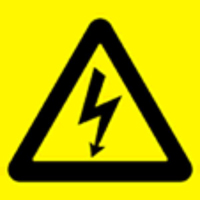 Bangladesh on the Conflict Risks Alerts
Bangladesh on the Conflict Risks AlertsInternational Crisis Watch puts Bangladesh on their Conflict Risk Alerts, released on December 1, 2006.
According to the bulletin, November overtook July 2006 as the worst month for conflict prevention since CrisisWatch began publication 40 months ago. Fourteen situations deteriorated in November, with seven conflict risk alerts (in anticipation of new or significantly escalated conflict). Improvements were noted during November in only three situations, and no new conflict resolution opportunities were identified for the coming month.
Sectarian killings in Iraq rose to their worst levels since the U.S.-led invasion in 2003. Violence in eastern Chad increased dramatically, with over 60 villages attacked and hundreds killed. Major fighting erupted in south Sudan between the Sudan People’s Liberation Army and the Sudanese Armed Forces in the first major violation of the 2005 north-south peace agreement. In Somalia, a draft UN Security Council Resolution recommending a regional intervention force and a partial lifting of the arms embargo threatened to generate a full-scale war. Political killing and Shiite resignations in Lebanon increased polarisation and brought the government close to collapse. Côte d’Ivoire became potentially explosive as relations soured further between the prime minister and president, and security forces allied to the latter took to the streets of Abidjan. The situation also deteriorated in Azerbaijan, Bolivia, Burundi, Central African Republic, Colombia, Fiji, India (non-Kashmir) and Tonga.
Three conflict situations showed improvement in November 2006. In Nepal, rebel Maoists and the interim government signed a historic peace deal, ending a 10-year war. Senegalese President Wade met with Casamance leaders in an effort to consolidate peace, announcing several measures for reconstruction and reconciliation. A newly adopted constitution in Kyrgyzstan establishing parliamentary checks on presidential power was ratified, thus easing tensions after mass opposition protests.
For December 2006, CrisisWatch identifies Bangladesh, Central African Republic, Chad, Côte d’Ivoire, Fiji, Lebanon and Somalia as Conflict Risk Alerts, or situations at particular risk of new or significantly escalated conflict in the coming month.
Please see Crisis Watch Report on Bangladesh at:
http://durdesh.net/news/Article339-flat-order0-threshold0.html
Please see European Resolution on Bangladesh at:
http://durdesh.net/news/Article360-flat-order0-threshold0.html
